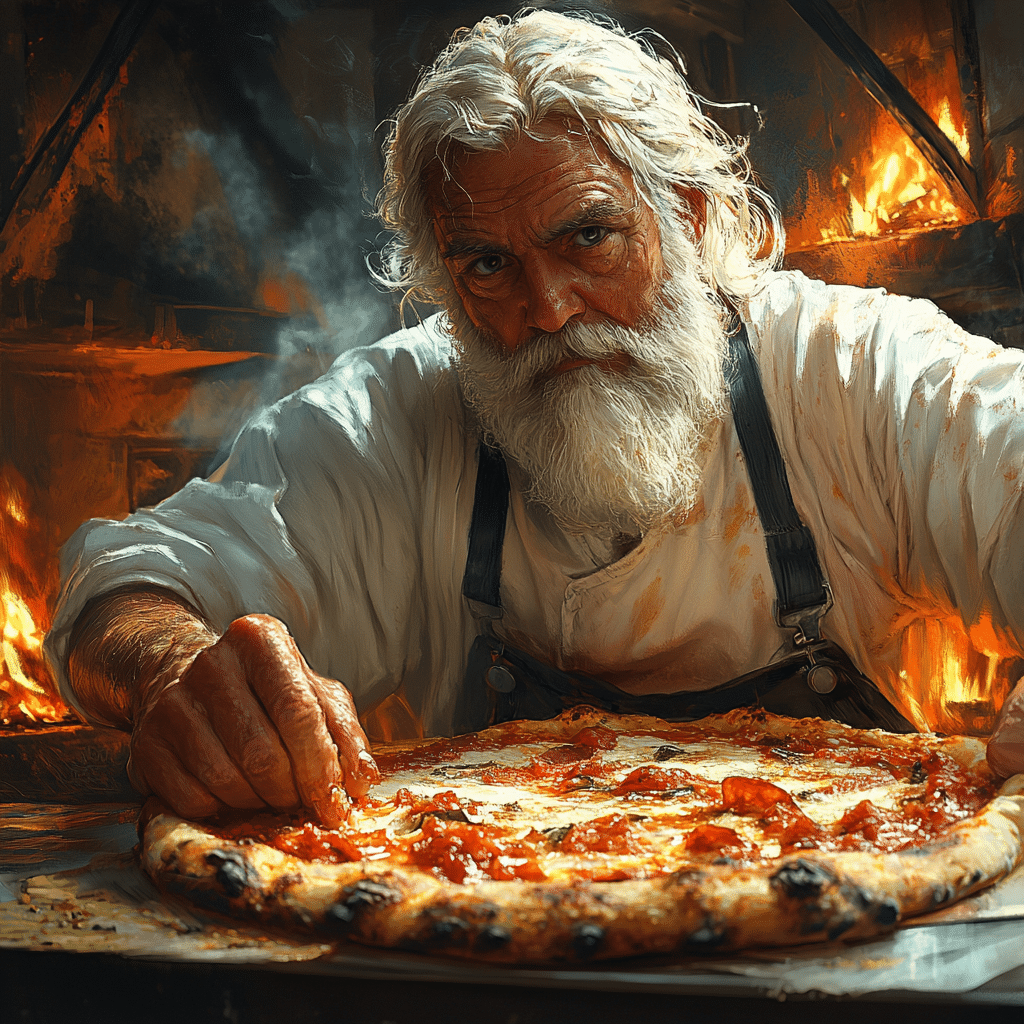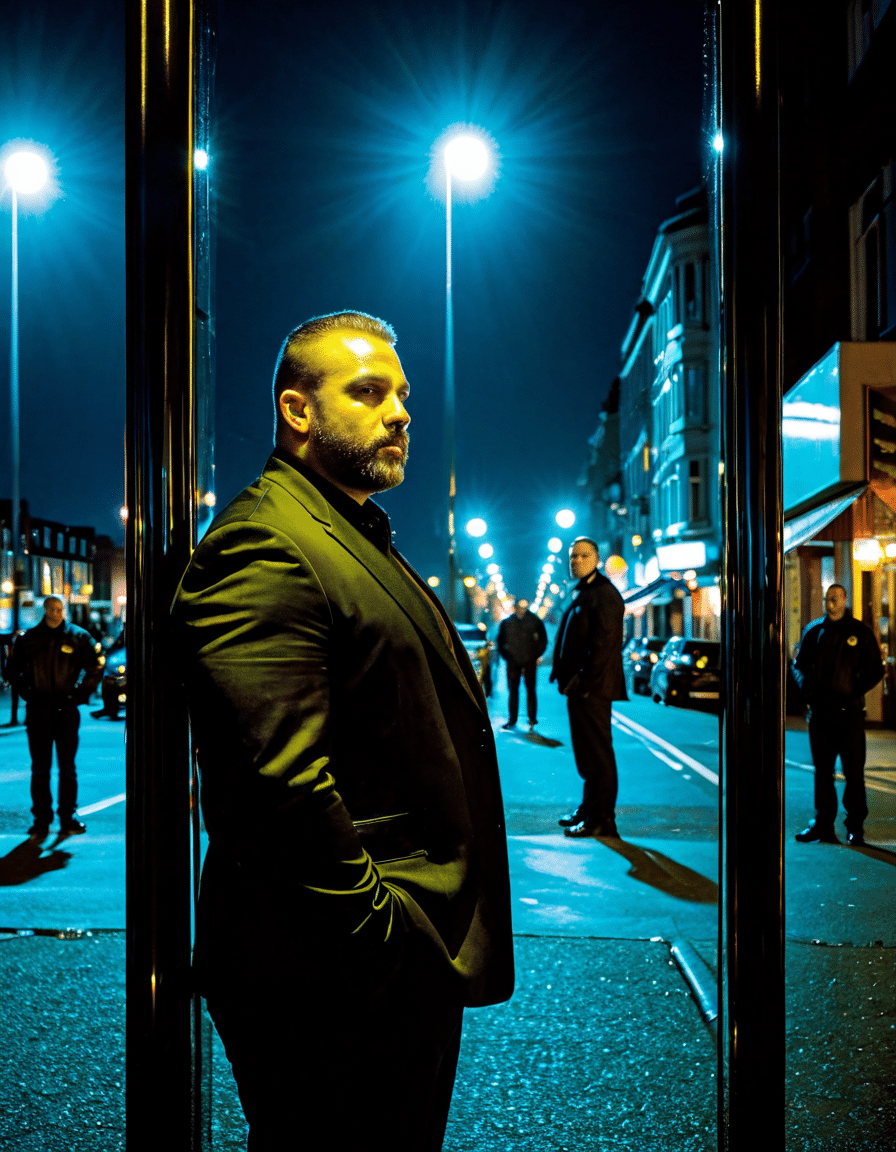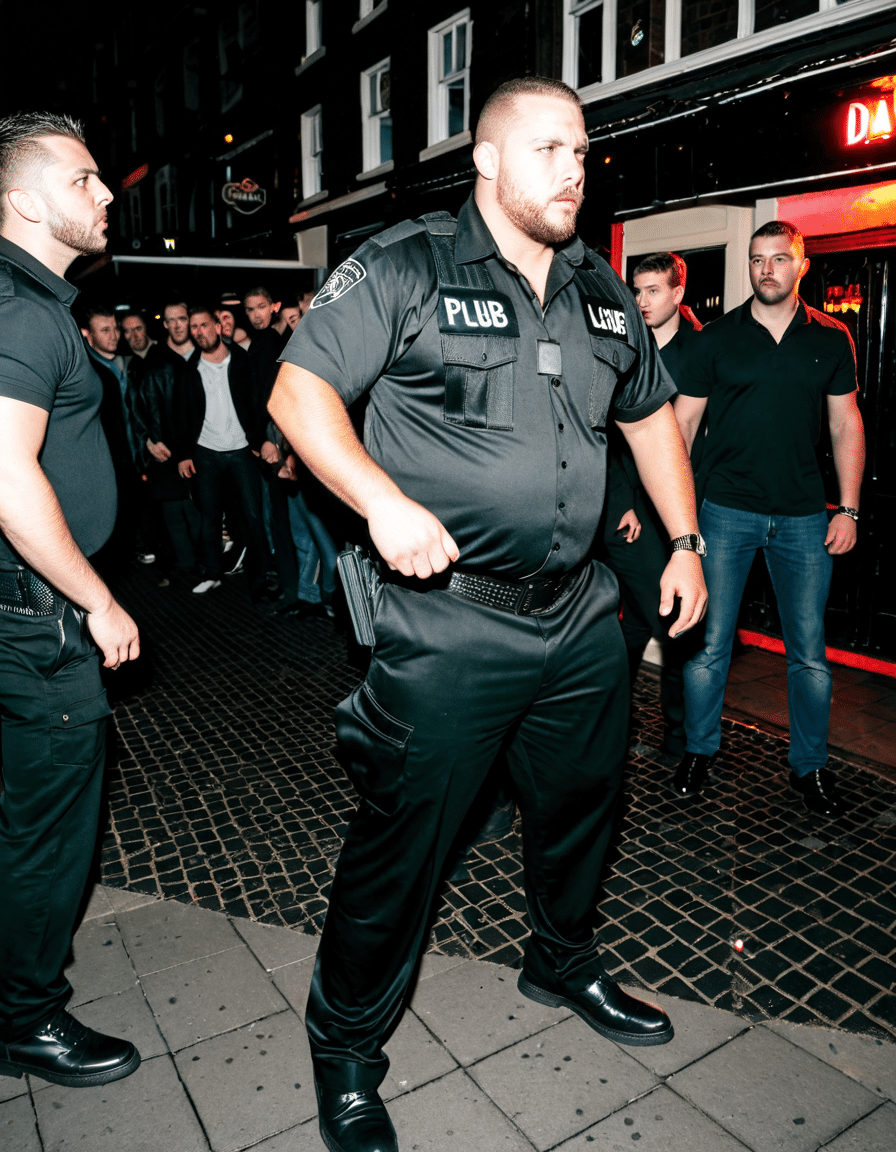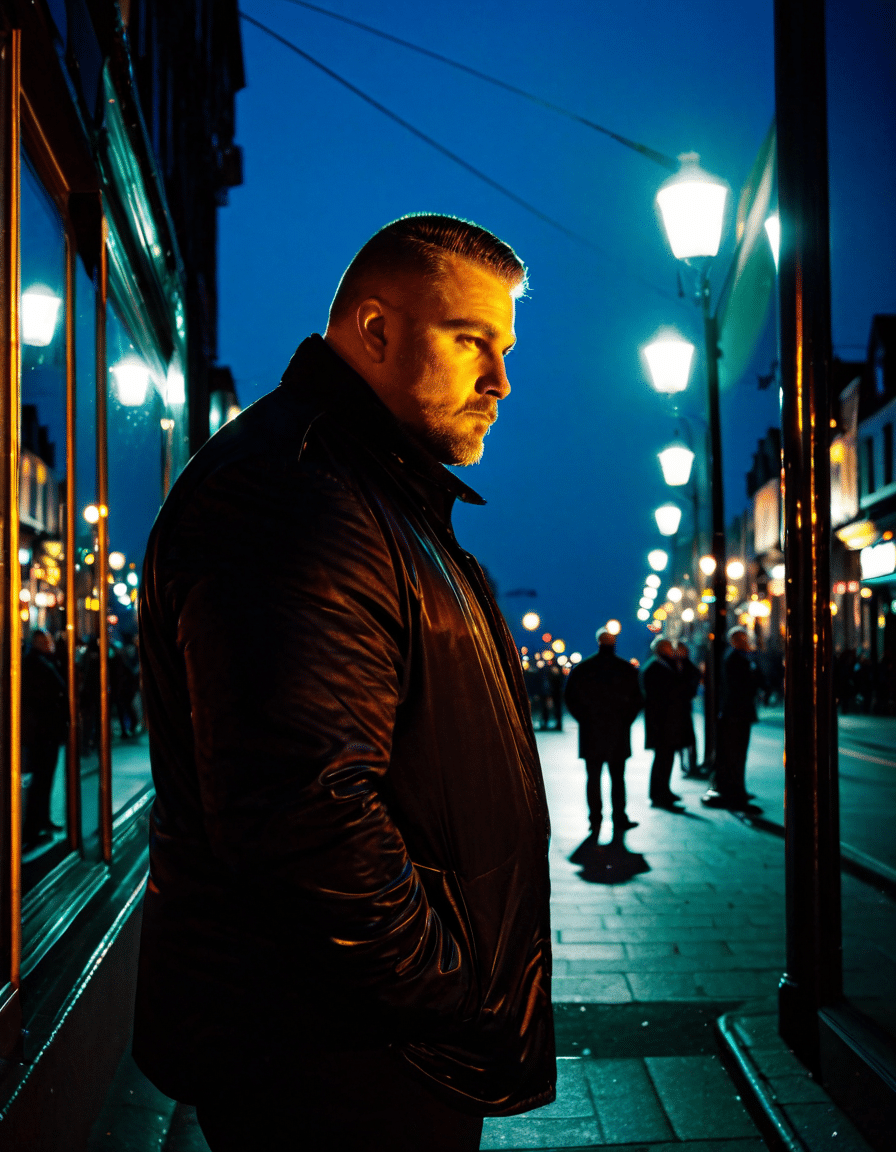
In the nightlife scene, a bouncer’s job goes way beyond just checking IDs and bouncing rowdy patrons. Bouncers are the unsung heroes of the club world, facing unpredictable encounters and often dangerous situations. This article dives deep into the life of bouncers and highlights seven qualities that not just define but also elevate the profession amidst a chaotic nightlife landscape. From exceptional communication skills to emotional intelligence, these traits make all the difference.

1. Exceptional Communication Skills: The Heart of Conflict Resolution
Every bouncer needs stellar communication skills. Without them, conflict can spiral fast. Take Michael “Mike the Shield” Greco, a prominent bouncer at NYC’s iconic nightclub, The Electric Room. With a natural flair for humor and a touch of empathy, Greco diffuses tensions that could easily ignite into full-blown chaos. Studies show that 85% of confrontations in nightlife settings can be calmed through effective dialogue. Isn’t that a remarkable stat? With such emphasis on communication, bouncers aren’t just muscle; they’re peacekeepers.
When trouble brews, it’s often the words exchanged that keep things from escalating. For instance, a simple, “Hey buddy, let’s take it easy,” can work wonders. These moments require a bouncer’s attention and quick wit to navigate complex social dynamics. By honing this crucial skill, bouncers can foster an atmosphere of safety, making the nightlife experience enjoyable for everyone.

2. Physical Fitness: Navigating Physical Threats with Confidence
Next up is physical fitness, another vital trait. With the nature of nightlife, bouncers often find themselves face-to-face with unpredictable patrons. Look at Tony “The Titan” Blanchard, a former MMA fighter turned bouncer. With his background, he’s not just strong; he’s skilled in handling physical confrontations. Many bouncers now adopt training programs like the Marine Corps Martial Arts Program (MCMAP) to gain combat skills and a mentality that prepares them to face threats head-on.
Staying fit isn’t just about lifting weights; it’s about preparing for any situation. A bouncer who maintains their physical health can act with confidence when needing to step in and protect others. They become the reassuring presence in chaotic nights. Talk about turning physical prowess into a safety shield!
3. Emotional Intelligence: Reading the Room
Another key attribute for bouncers is emotional intelligence. It’s the ability to pick up on others’ feelings and moods. Take Emily Zhao from San Francisco, for example. With her keen observational skills, she can spot potential troublemakers long before they act. Her expertise has been instrumental in creating a safe environment in crowded venues. Research supports these observations; bouncers with strong emotional intelligence can reduce incidents significantly.
Recognizing a tense vibe or a hostile interaction means bouncers can step in before things escalate. It’s akin to a sixth sense that many in this profession cultivate over time. With this talent, they not only keep order but also foster a sense of community in nightlife spaces.
4. Situational Awareness: Anticipating the Unpredictable
Situational awareness leads us to another essential quality: the ability to foresee issues before they arise. Caleb Harrison, a former Minneapolis bouncer, has built a reputation for his knack in gauging crowd moods. By spotting tension before it ignites, he often turns potential fights into peaceful resolutions. Law enforcement research indicates that heightened awareness can reduce violence by up to 30%. It’s a game-changer!
Bouncers aren’t just on the lookout for physical threats. They pay attention to crowd dynamics, individual actions, and even body language. The more they understand, the better prepared they are to maintain peace. In doing so, they take on the role of proactive guardians in their venues.
5. Proven Reliability: Earning Trust in the Nightlife
Bouncers are the bedrock of trust in nightlife spaces. Patrons and club owners rely on them to maintain safety and decorum. David “The Rock” O’Reilly, a bouncer at The Tudor Pub in Chicago for over a decade, embodies reliability. He’s known for his integrity and strong sense of duty among both patrons and staff, earning him accolades from local officials.
Trust plays a crucial role. When patrons feel secure knowing there’s a dependable bouncer watching their back, they can relax and enjoy their night out. Moreover, a bouncer’s consistent presence fosters an atmosphere of safety, making a venue more appealing.
6. Conflict Management: Transforming Chaos into Calm
Managing conflict is an art, and great bouncers are artists at it. Take Sofia Elder, a Los Angeles bouncer renowned for her training in non-violent communication strategies. She often resolves confrontations before they turn violent, showcasing the power of calm in chaotic environments. Research illustrates that embracing conflict can lead to more positive outcomes than avoiding it.
Sofia’s ability to defuse situations means patrons leave safe and unscathed, transforming chaotic potential into harmonious resolutions. It’s a tough skill to master; however, bouncers equipped with it rise above the tumult of the nightlife scene.
7. Strong Decision-making Skills: Acting Under Stress
And then we arrive at decision-making skills—the backbone of a bouncer’s effectiveness. Marcus “The Guardian” Jensen demonstrated this caliber during a potentially deadly encounter at Club Mystique. With seconds on the clock, he discerned the brewing tension and acted swiftly to minimize harm. It’s precisely this kind of quick thinking that can shift the outcome in dangerous situations.
Decision-making often comes down to split-second judgment calls. A bouncer’s ability to weigh options, consider consequences, and act is paramount. In high-stress scenarios, each decision can mean the difference between safety and chaos, thus defining their professional legacy.
Leading the Charge: The Future of the Bouncer Profession
Looking ahead, the bouncer profession is set for transformation. As nightlife evolves, bouncers must adapt. With advancements in technology like surveillance systems and smart training programs, the role is expanding. This trend shifts towards building collaborative community relations that prioritize safety while keeping the fun alive.
As nightlife scenarios become more complex, the bouncer’s role as protector and peacekeeper becomes crucial. They aren’t just gatekeepers; they’re integral to creating vibrant, safe social atmospheres. With resilience as their compass, bouncers are gearing up to navigate the ever-changing terrain of nightlife in ways we’ve yet to fully comprehend. The future is bright for those who embody the true spirit of this challenging yet rewarding profession.
In the grand landscape of entertainment, where safety and enjoyment walk hand-in-hand, bouncers stand as steadfast guardians, transforming chaotic nights into memorable experiences. They’re essential, not just for clubs and bars but for the very essence of our social interactions. So, the next time you enjoy a night out, take a moment to appreciate the bouncers—those brave souls who make it all possible.
Bouncer: A Life on the Edge
The Surprising Origins of the Bouncer Profession
Did you know that the role of a bouncer dates back to ancient taverns? While today’s bouncers often enforce rules and maintain order, their ancestors were more like guards, employed to keep rowdy patrons at bay. Fast forward to modern times, and you’ll find bouncers juggling everything from managing crowds to dealing with unexpected confrontations. It’s a job that demands both physicality and quick thinking, not unlike the journey of Here Comes the Boom cast members who tackled their own challenges in the ring. Adrenaline rushes are common for any bouncer, especially when faced with an unexpected situation that calls for a cool head under pressure.
Bouncers and Celebrity Encounters
You might be surprised to learn that bouncers often rub elbows with celebrities, making fascinating stories fuel for their life experiences. For instance, Jenna Jameson, now a household name, has crossed paths with more than a few bouncers during her time in the nightlife scene. These encounters can lead to exciting tales that highlight the unpredictable nature of a bouncer’s job, blending glamour with gritty reality. But amidst the glitz, tragedy sometimes lurks—just ask folks familiar with Alex Collins’ death, which serves as a reminder of the often unforgiving environment bouncers navigate every night.
Daily Challenges and Life Skills
Bouncers develop a slew of invaluable skills that go beyond ensuring safety. They often employ methods like range Of motion Exercises to stay fit and agile while on the job. This fitness fact is especially useful since quick reflexes can mean the difference between a mishap and averted chaos. And let’s not forget the art of diplomacy; bouncers frequently handle conflicts that require charisma and smooth talking, much like Rachael Macfarlane dealing with the pressures of voice acting amidst high-stakes situations. It’s a testament to how multifaceted this role truly is—much like Howard Keel, the legendary actor who mastered various talents in showbiz, bouncers constantly hone their craft for the unpredictable nightlife.
So the next time you see a bouncer, remember: there’s so much more to their story than just standing at the door. They live in an exhilarating world filled with tales of adventure, unpredictability, and sometimes, even the strangeness of groups like the human gathering cult.










